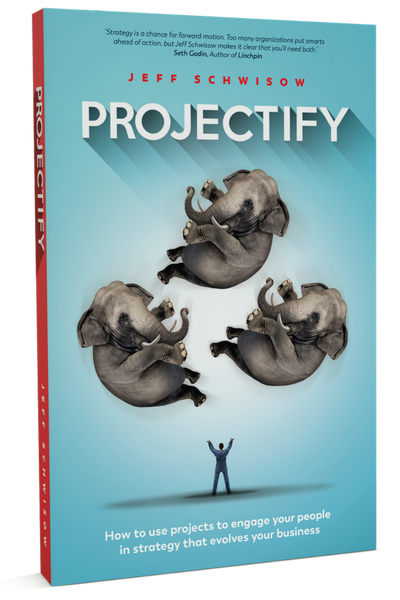Project Framework – Designing for Team Performance
Projects represent one of the most powerful ways to harness collective human capability. Bringing people together in service of a common set of objectives around a defined scope for a prescribed duration – the very nature of projects – can have a catalysing effect. It can create an environment where engaged and motivated teams thrive. The shared purpose and the tangible goals can allow a team of people to deliver ten-fold more business value than the sum of the individuals.

Unfortunately, far too often project teams fall short of delivering their true value potential because they are not provided with a framework in which to perform. It’s common to see teams that are given expectations – results that they are meant to achieve – but are left to create their own framework for achieving them. Often they are given a reporting framework for monitoring results and accounting for deviations from expectations. Perhaps they will be expected to measure and report on progress against the desired result – productivity, in its many forms, or earned value. In most project environments, there is structure around governance and authority to commit expenditure. All of this structure is aimed at controlling the team – at monitoring the scoreboard. Seldom do we design a framework that helps the team to continuously grow, improve and be their very best.
One of the key roles of project leadership is to create this framework – to design it in an effective way. A well-designed project framework provides a team with business processes that promote collaboration. It includes elements that ensures activity is in service of delivering value rather than keeping busy. It allows for the planning and re-planning of the work so that it can respond to the dynamic environment that almost always exists on projects. It measures progress as achievement so that it feeds the motivational need that allows people to stay committed over the long haul. A good framework allows adaptation by the team to suit their specific circumstances so that they make it their own. Most importantly, a good framework is designed with the specific intent of allowing the people doing the work to be really good at the work that they’re doing.
I refer to the influence that this framework has on project performance as Production Management. I have adopted this terminology (which comes out of the Lean Construction movement) because the transformational nature of nearly all projects means that they respond according to the laws and principles of production. We don’t choose whether our projects are production systems or not – we choose whether we design a project framework that takes advantage of this knowledge.
Whether you refer to it as work execution management, operations management or “how things are done around here”, approaching this framework in a structured, rigorous way gives teams the greatest opportunity to excel. When you combine the framework with an effective team structure team members have the ability to reliably meet their commitments – to do what they say they will do day-in and day-out. By combining a rigorous production framework with a clear sense of what represents value on the project that you give the team the tools to continuously improve and make their efforts conform to the project’s business objectives.
In designing a framework for production management, there are three key areas that I recommend focusing on:
- Production Planning and Control. The management of the detailed project work flow by prioritising those activities, on a daily basis, that matter most to achieving an overall delivery strategy, in an environment where change and unknowns are ever-present.
- Value Creation in Design. Techniques to utilise design as a value creation process (rather than a deliverables generation activity) so that you design what you are happy to build. You do this by developing the design of the “product” at the same time that you are designing the “installation process.”
- Supply Chain Management. The optimization of the supply of information, resources and equipment to where it is required to do the work so that supply is meeting demand in accordance with your delivery strategy.
When you give your project teams a solid framework on which to build, you equip them with the structure to deliver truly exceptional business outcomes.
Questions for consideration:
- Do you design a project framework for your teams or do you leave them to their own devices?
- Is the framework for your project one that was developed with control in mind or team performance?
- Do you manage production in an ad hoc manner or in a structured and rigorous way?
I would love to hear your thoughts and experiences. Please share them in the comments area below.




Leave a Reply
Want to join the discussion?Feel free to contribute!